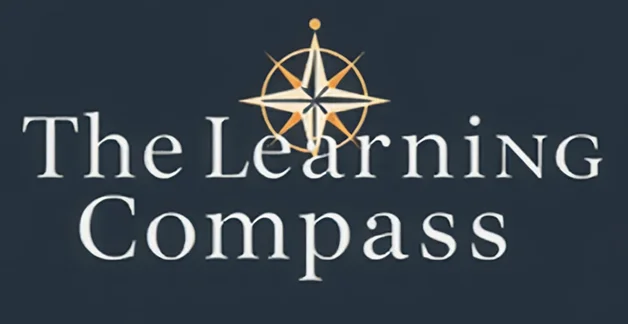
The Department of Education Shutdown: What It Means & How The Learning Compass Can Help
The potential shutdown of the U.S. Department of Education (DOE) is a seismic shift in the educational landscape. Without federal oversight, states will gain full control over policies, funding, and standards—leading to both opportunities and challenges. As uncertainty looms, parents, educators, and school districts must prepare for a decentralized system that varies widely across the country.
This transition presents significant implications for students, teachers, and schools. But with change comes opportunity. The Learning Compass is poised to step in and provide innovative, student-centered solutions to help educators and families navigate this new era.
Key Changes If the Department of Education Shuts Down
1. Greater State Autonomy
Each state will assume full responsibility for education policy, funding, and accountability. While state departments of education already play a role, they will now dictate everything from curriculum to graduation requirements. This shift could lead to more localized and culturally relevant education models—but also create disparities in quality and access.
2. Funding Disruptions & Inequities
Currently, federal programs like Title I (supporting low-income students), IDEA (special education), and Pell Grants provide essential financial aid. Without a centralized distribution system, Congress will need to devise alternative methods—or states may have to fund these programs independently. Wealthier states may sustain existing services, while under-resourced states could face funding shortfalls, widening the education equity gap.
3. Varied Standards & Accountability Systems
States will set their own academic standards, testing policies, and graduation benchmarks. While some may retain Common Core-style frameworks, others could implement entirely new systems, leading to inconsistencies nationwide. This lack of uniformity may challenge students who move between states and complicate college admissions.
4. Teacher Certification & Training Inconsistencies
Without federal oversight, teacher licensure and professional development standards will vary. While this decentralization may allow for more innovative training approaches, it could also result in lower qualification thresholds in some states, impacting teacher preparedness and student outcomes.
5. Civil Rights & Equity Oversight Shifts
Currently, the federal government ensures compliance with anti-discrimination laws in education. If the DOE dissolves, enforcement may shift to the Department of Justice or become fragmented among state agencies—potentially leading to gaps in protections for marginalized students.
6. Increased Innovation & Competition
Some states may leverage this transition to expand school choice programs, charter schools, and technology-driven education solutions. While this could spur innovation, it may also lead to increased disparities in education quality and accessibility.
7. Data Collection & Research Gaps
The National Center for Education Statistics (NCES) currently provides comprehensive national education data. Without federal coordination, states will need to establish independent data collection systems, which could lead to inconsistencies and hinder nationwide research efforts.
How The Learning Compass Can Bridge the Gaps
As the education system undergoes massive restructuring, schools, educators, and families will need adaptable solutions. The Learning Compass is ready to step in, providing expertise, resources, and customized support to ensure students continue to thrive.
1. Customized Learning Solutions for Every State
With each state developing unique standards, districts will need flexible curriculum solutions tailored to their new policies.
🔹 State-aligned curriculum development
🔹 Personalized learning plans for diverse student populations
🔹 Guidance on adjusting to evolving state policies
2. Filling the Gaps in Special Education & Support Services
Federal programs like IDEA help students with disabilities access essential services. Without them, districts will require external partners to provide specialized support.
🔹 Special education consulting & compliance guidance
🔹 Multi-tiered intervention strategies (RTI/MTSS)
🔹 Comprehensive English Language Learner (ELL) frameworks
3. Expanding Professional Development for Educators
With shifting requirements, teachers will need continuous training to stay updated on new policies, instructional strategies, and compliance regulations.
🔹 State-specific compliance webinars
🔹 Workshops on differentiated instruction & student engagement
🔹 On-demand training modules for educators & administrators
4. Offering Ready-to-Use Curriculum & Licensing Options
Schools will seek pre-built, adaptable resources that align with evolving standards. The Learning Compass can provide:
🔹 Modular curriculum units
🔹 State-specific educational content
🔹 Licensing options for customized district use
5. Leading the Conversation in Education Reform
As states take charge of education policy, trusted partners will be essential in shaping best practices. The Learning Compass can establish itself as a thought leader by:
🔹 Hosting state-specific education summits & virtual conferences
🔹 Publishing research & white papers on adapting to new policies
🔹 Participating in state advisory panels & education task forces
6. Enhancing Technology Integration for Personalized Learning
With less federal oversight, states may be more open to digital learning solutions. The Learning Compass can accelerate the development of its app to:
🔹 Provide personalized learning plans based on state standards
🔹 Offer real-time student progress tracking for parents & teachers
🔹 Create an interactive parent-teacher dashboard for engagement & monitoring
A New Era in Education—Are You Ready?
As the future of education shifts toward state-controlled models, adaptability will be key. Parents, educators, and school districts must embrace change while ensuring that students continue to receive the support they need.
At The Learning Compass, we specialize in navigating complex educational landscapes. Whether you need customized curriculum, intervention strategies, or educator training, we’re here to help you prepare for the future.
📚 Explore our learning plans today and take the first step toward educational success!
Discover Our Learning Plans